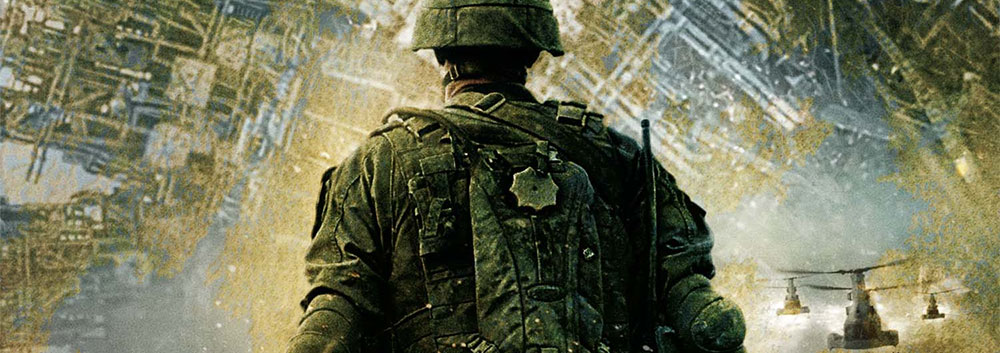

It was a choice between Munich and the Geisha movie, and I have really wanted to see Munich since I heard that Steven Spielberg was tackling a movie about terrorism.
True to what you would expect, Munich is a well-written revenge thriller which puts Steven Spielberg back into the “Great Director” category (see previous post). I have to admit though, that the story starts to drag a little near the end.
Speaking of the ending, I liked the cameo appearance by the twin towers. It’s largely (and thankfully) on that level that the film operates.
But the beauty of the story is that it accomplishes so much more than just giving you a peek into the spy/espionage aspect of Israel’s response to the Munich Olympics attacks. The triumph of the story is the way it draws you down the slippery slope of a revenge fable while at the same time giving you an interesting window into both sides of the Palestinian/Israeli conflict.
If I walked away from Munich with anything, it’s an appreciation for the raw fundamental power of the emotions involved by both sides. The movie speaks in analogies of family and home, and has the maturity to not make any definite conclusions or get too preachy. But here is where we come to my second gripe about the movie: the ending.
I’m still trying to figure it out. I won’t ruin it here, but I will say that while I appreciate an ending that doesn’t necessarily tie all the loose story threads up nice and neatly, I also DON’T appreciate an ending so ambiguous in its meaning that it throws your whole interpretation of the movie into question, making you wonder if you got any of it right for over two and a half hours.
Anyone feel free to read the comments section for my take on the ending.
Further reference: One Day in September is a fantastic documentary about the attacks.



3 Comments
Brian · January 2, 2006 at 10:28 pm
*****
Disclaimer
This isn’t really a spoiler, but if you really don’t want to know anything about the movie before you see it, don’t read this.
*****
Okay, so at the end, the main character, a shin bet (Israeli secret service) agent who has essentially burnt out and retired to Brooklyn to live with his wife and daughter is confronting his handler in a park overlooking Manhattan. They talk, yadda yadda, and cannot come to agreement as to what the meaning of their assassination action has been and whether Avner (the agent) should come back “home” to Israel.
At the end, Avner invites his handler to his house to “break bread”. Now, I’m not Jewish, but the movie points out that this is an ancient Jewish tradition to set the stage a little.
And the end of the movie is: the handler says “no.” And walks away.
Now. Why doe he say no?
While the movie provides a heavy emotional burden by showing you the deteriorating state of the agents tasked with bringing Israel’s wrath to “those responsible”, the main message is: revenge comes at a high emotional price. So one interpretation of the ending is to believe that the culmination of all of these “righteous” actions is the complete disavowal of the agent by the society/government/agency that he was supposed to be serving in the first place.
An extreme version of “you can never go home.”
But I don’t like that interpretation. Although their disagreement about the righteousness of their actions is the note the movie ends on, I think it’s more plausible to believe that by saying “No, I won’t break bread with you and share in affirming our shared ancestry,” the handler is basically saying, “If you can’t come home to Israel and break bread there, then you aren’t worthy of breaking bread with.”
This interpretation is also a but unsatisfactory because their relationship and their final conversation doesn’t have any malice or truly strong conflict in it that would explain such a harsh response to an offered hand.
So the question remains: why does he say no?
Is it because the agent isn’t worthy? Or because he doesn’t believe HE is worthy? Or is he punishing the agent for not coming home (and agreeing to the same world view)?
Why?
mochasteak.com » Blog Archive » The Constant Gardner · January 3, 2006 at 4:54 pm
[…] And, unlike the last movie I just reiewed, the ending of this one is stellar. It ends as it began. Powerfully. With an emotional bang so loud that they didn’t even need to add sound from the gunfire. […]
Comments are closed.